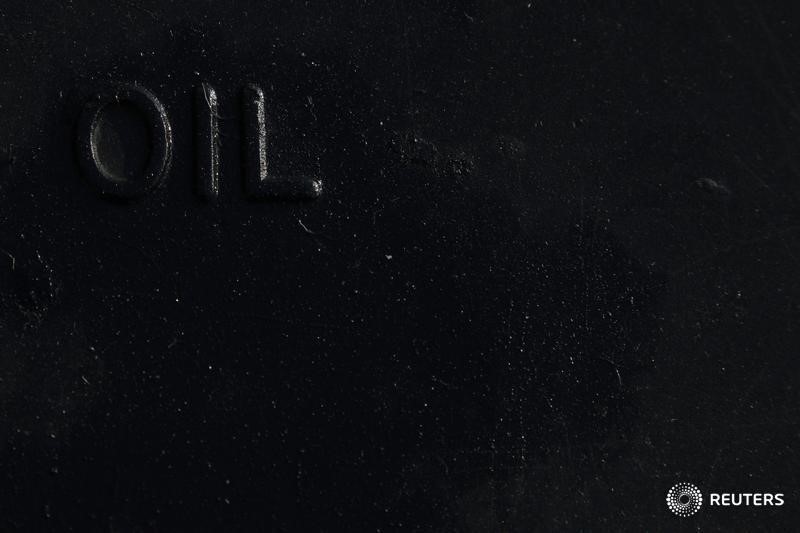By Christopher Johnson
LONDON (Reuters) - Oil prices fell on Tuesday, depressed by concerns that the U.S.-China trade dispute will dent economic growth and by signs of rising global supply despite upcoming sanctions against Iran.
Benchmark Brent crude oil (LCOc1) fell $1.05 a barrel to a low of $76.29 before recovering slightly to around $76.44, down 90 cents, by 1205 GMT. U.S. light crude (CLc1) was 60 cents lower at $66.44.
Both contracts have recovered some ground over the last week but are around $10 a barrel below four-year highs reached in the first week of October.
"Positives remain in short supply for oil bulls as a softening demand backdrop continues to underpin selling pressures," said Stephen Brennock, analyst at brokerage PVM Oil.
Oil has been caught in the global financial market slump this month, with equities under pressure from the trade war between the world's two largest economies.
Financial markets found some support on Tuesday from reports that U.S. President Donald Trump thinks "a great deal" with China is possible on trade.
But for now the dispute between Washington and Beijing goes on and looks set to curb global economic growth and fuel demand.
The International Energy Agency (IEA) said on Tuesday high oil prices were hurting consumers and could dent fuel demand at a time of slowing global economic activity.
"There are two downward pressures on global oil demand growth. One is high oil prices, and in many countries they're directly related to consumer prices. The second one is global economic growth momentum slowing down," IEA chief Fatih Birol told an energy conference in Singapore.
Consultancy JBC Energy said the oil price weakness was "probably driven by the wider negative market sentiment amid speculation about additional U.S. tariffs on Chinese imports, should upcoming talks fail to produce the desired results".
Oil is also under pressure from rising output by the world's biggest producers - Russia, the United States and Saudi Arabia - who are helping to replenish global oil inventories after more than a year of stock draws.
Oil production from these three producers reached 33 million barrels per day (bpd) for the first time in September, Refinitiv Eikon data showed.
That's an increase of 10 million bpd since the start of the decade and means these three producers alone now meet a third of global crude demand.
The United States is set to impose new sanctions on Iranian crude from next week and exports from the Islamic Republic have already begun to fall.

But there appears to be no significant shortage of crude. Saudi Arabia and Russia have said they will pump enough to meet demand once U.S. sanctions are imposed.
